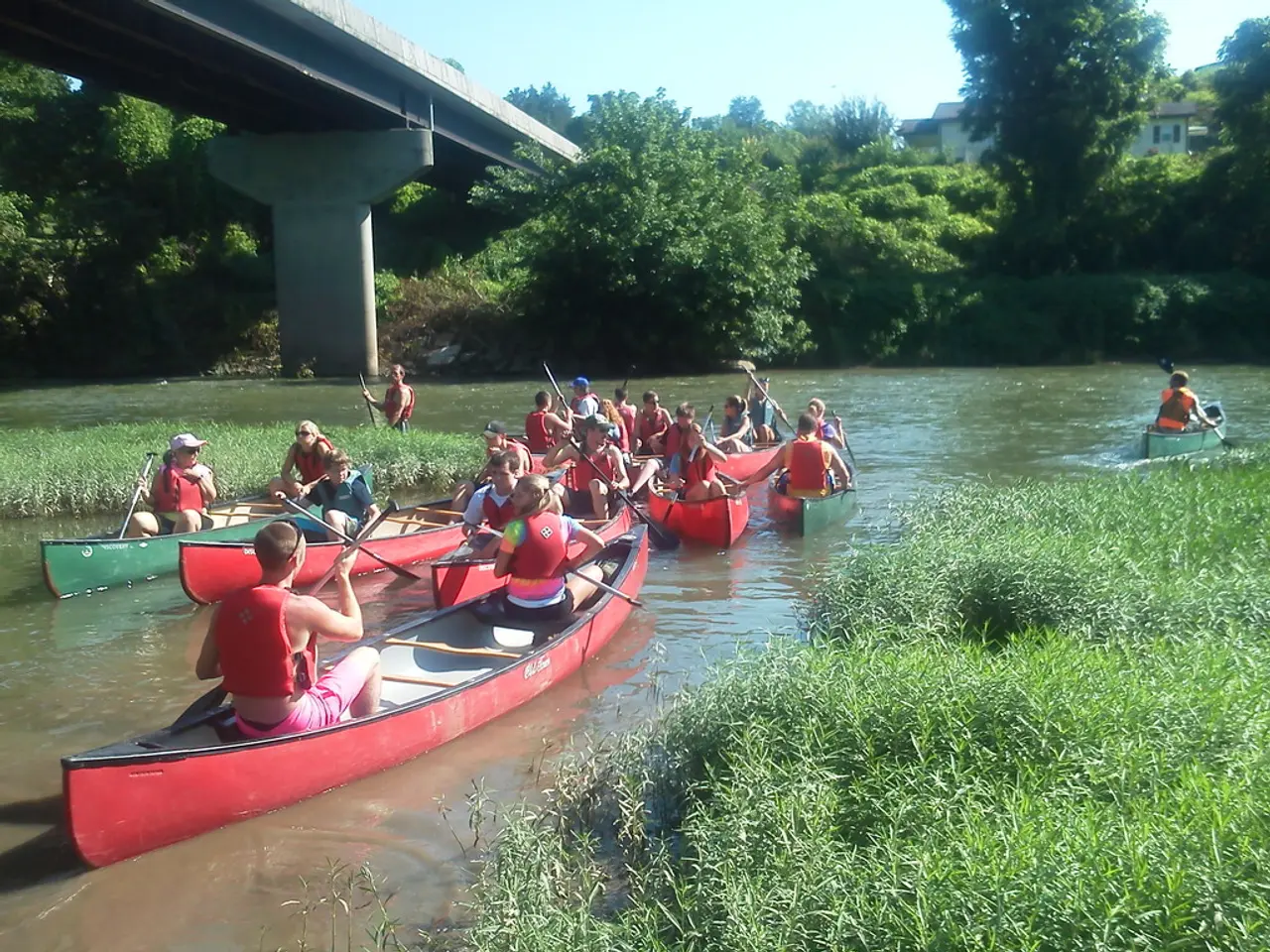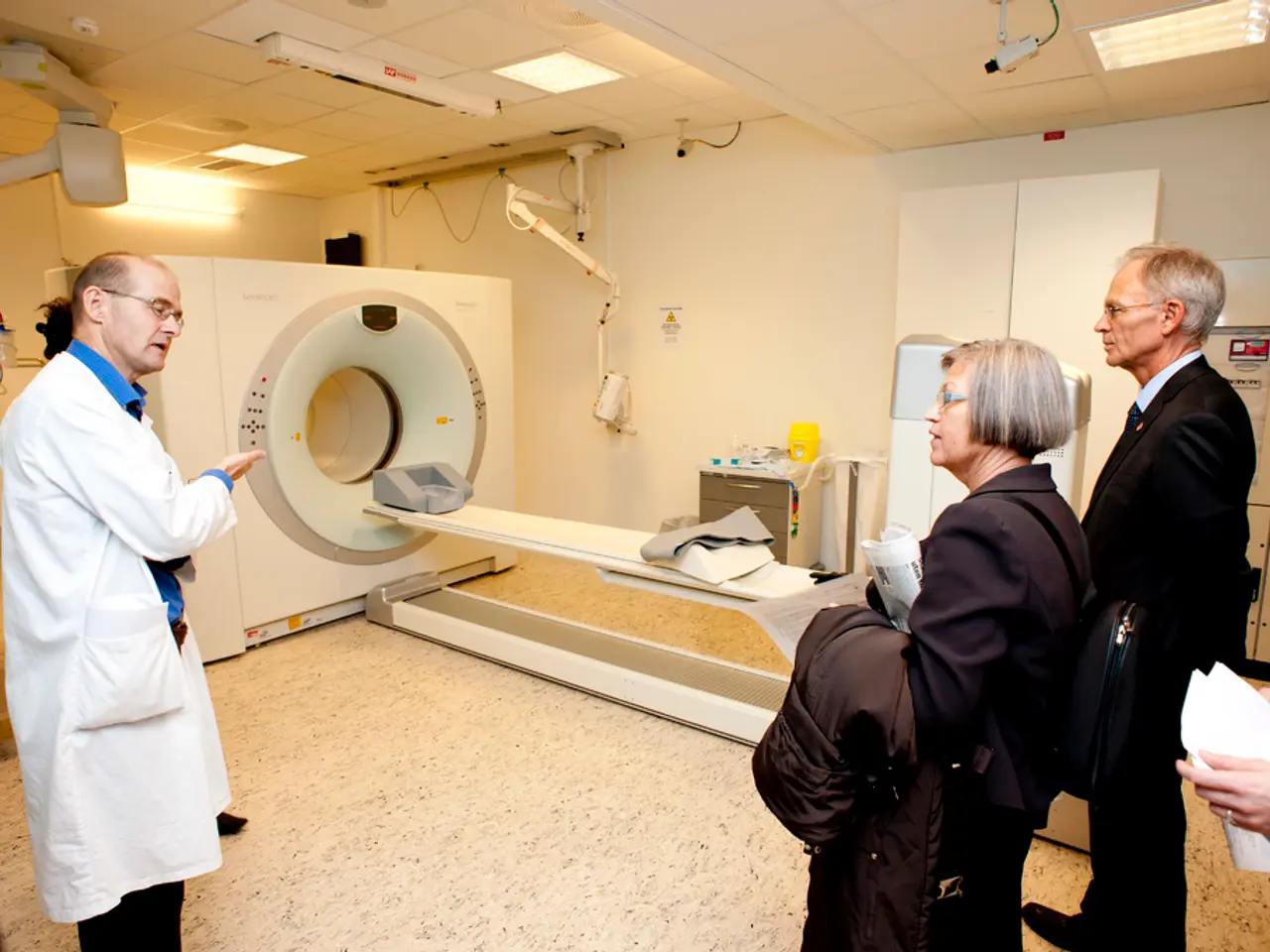CDU advocates for a river swimming in Hamburg
Hamburg, the bustling city on the Elbe and Alster rivers, is considering innovative solutions to create public river bathing spots, inspired by successful examples in Scandinavian cities like Copenhagen, Oslo, and Malmö.
However, Hamburg's unique conditions—including a significant tidal range and high shipping traffic—pose challenges. The Senate has expressed concerns about the suitability of the Elbe and Alster rivers for safe and clean bathing zones.
In contrast, Scandinavian cities have tackled similar issues with advanced filtration systems, safety measures, and architectural solutions. For instance, Copenhagen has areas along the harbour where filtered and monitored water is used for swimming, despite metropolitan waterways. Oslo and Malmö also employ innovative water management and safety infrastructure to allow public swimming in urban rivers.
The feasibility of river bathing in Hamburg includes addressing water quality challenges, managing tidal and traffic issues, and overcoming implementation costs and political will. The CDU party advocates for leveraging technology and architectural innovations to make the river accessible, but the Senate remains cautious due to the complex regulatory environment for federal waterways.
Alternative or complementary solutions in Hamburg include existing water wellness options such as natural swimming ponds and indoor pools with saunas.
The suitability of the waters for bathing sports is currently being tested within a parliamentary request titled "Urban development by the water - new perspectives for Hamburg's water bodies."
Anke Frieling, urban development spokeswoman for the CDU, believes Hamburg's waters should be accessible for bathing, swimming, and enjoying. She criticises the Senate for ignoring the fact that challenges related to financing, safety, hygiene, and water quality have been addressed in other cities. Frieling demands creative solutions for more water access in Hamburg, questioning the impossibility of swimming in a harbour basin where new high-rise buildings are being built.
Frieling warns that Hamburg is squandering its potential by not pursuing creative solutions for more water access. The Senate's response suggests that the conditions are to be assessed differently in Hamburg compared to the mentioned Scandinavian cities. The Senate states that the often insufficient water quality speaks against a corresponding use of the waters.
Success in implementing river bathing in Hamburg would likely require significant infrastructure investment, water quality improvements, and innovative design similar to those leading Scandinavian cities have already implemented. The debate and feasibility studies continue.
- The CDU party, advocating for increased water access in Hamburg, is urging the utilization of technology and architectural innovations, as seen in successful policy-and-legislation regarding river bathing in Scandinavian cities.
- Despite the Senate's concerns about the suitability of the Elbe and Alster rivers for public bathing zones due to water quality challenges, high traffic, and complex regulatory environment, discussions about policy-and-legislation for river bathing in Hamburg are ongoing, considering alternatives and drawing inspiration from general-news of successful implementations in other cities.






